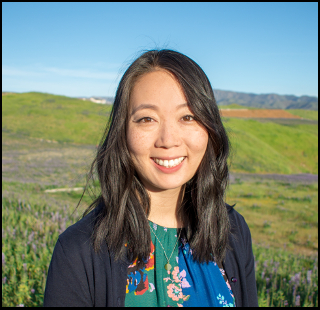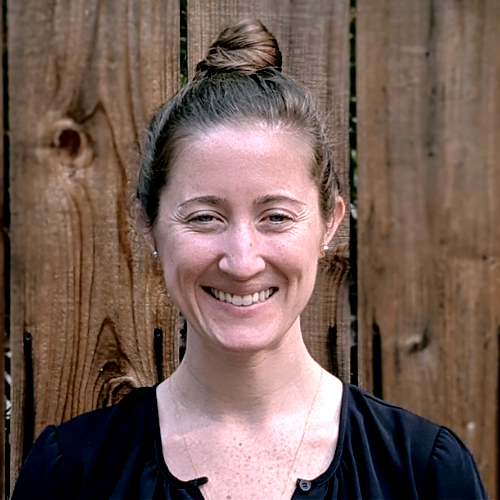by Molly Bowdring, M.S., University of Pittsburgh
The PCSAS Newsletter will regularly feature “Spotlights,” which aim to highlight students and early career researchers from different PCSAS programs and the excellent work they are doing. The present article focuses on Dr. Alayna Park, a recent graduate from the UCLA Clinical Psychology Doctoral Program. Dr. Park has just started a faculty position at Palo Alto University.

Driven by her goal to leverage clinical science to enhance human well-being and functioning, under the mentorship of Dr. Bruce Chorpita, Alayna has worked hard to develop a comprehensive program of research. Her research focuses on strategies for enhancing the effectiveness and responsiveness of evidence-based psychotherapies in diverse and complex clinical contexts. Consistent with the PCSAS mission of merging the science and practice of psychology, Alayna’s work involves distilling strategies from the research evidence base and partnering with community organizations to identify efficacious and sustainable solutions for improving the quality of mental health care and for mitigating racial and ethnic mental health disparities. For example, Alayna has partnered with a community mental health and welfare agency to elucidate factors (e.g., client-provider racial and linguistic matching) that impede or promote mental health treatment engagement among traditionally underserved youth and families (Park et al., 2019). These data will inform the development of resources for better connecting families in need with appropriate services. Moreover, Alayna directed a multi-site study (PIs: Dr. Chorpita & Dr. Becker) in partnership with school mental health and wellness centers to identify ways of incorporating evidence into mental health treatment and supervision at these sites. Alayna’s commitment to clinical science is reflected not only in her high research productivity – with over 20 peer-reviewed scientific articles – but also in her numerous regional and national recognitions. Additionally, her colleague, Meredith Boyd, noted that beyond Alayna’s impressive research and clinical work, she demonstrates a strong commitment to clinical science through serving as a research and clinical mentor to fellow graduate and undergraduate students alike.
Having clearly been successful in navigating the multiple roles of a clinical scientist thus far, we would be remiss if we did not ask Alayna if she had any tips for success. She responded with something we can all benefit from being reminded of – it is ok to seek support from colleagues. “As researchers, it is impossible to be an expert in everything and collaborations can not only improve the quality of our research but can also ease our time commitments.” The same goes for clinical work: “…as practitioners, we are encouraged to consult when managing complex cases or working with presentations outside of our expertise.” Alayna additionally underlined that while it is easy to get caught up in our work due to its rewarding nature, setting limits is a key skill for clinical scientists to learn. “Being thoughtful and strategic about what we say ‘yes’ to can not only improve the quality of our work but can also allow us to give our best to others.”
Alayna has recently said ‘yes’ to a new role herself – after completing her pre-doctoral internship at the VA Long Beach Healthcare System this summer, she has started a tenure-track Assistant Professor position in the Department of Psychology at Palo Alto University (https://www.paloaltou.edu/faculty/park-alayna-phd). As she looks toward the next phase of her career, we were curious to hear her thoughts on growth areas for clinical psychology training. She advocated for continuous quality improvement: “To train a workforce of clinical scientists with the knowledge and skills to address burgeoning problems in the field, programs need to be continuously evaluating and refining how their coursework, research, and clinical opportunities map onto the current mental health needs of the public.” As for her views on PCSAS, she expressed enthusiasm for the growing recognition of PCSAS accreditation by various organizations, noting the crucial role of graduates from PCSAS-accredited programs in contributing to a workforce of skilled clinical scientists. Consistent with her view on clinical training more broadly, Alayna added that, “As PCSAS matures as an accreditation system, I hope that the accreditation policies, procedures, and criteria will be continuously refined to meet current needs within clinical training and mental health services delivery.” We hope so too, and are confident that it will with the passion and perspective that the next generation of clinical scientists, including Alayna, will offer to our field.
If you would like to nominate a PCSAS student to be featured in an upcoming spotlight, we would love to hear from you! Please email pcsasnews@gmail.com with the name of the student, the program to which they belong, and a few sentences about why you believe they should be featured.
________________________________________________________________
Disclaimer: The views and opinions expressed in this newsletter are those of the authors alone and do not necessarily reflect the official policy or position of the Psychological Clinical Science Accreditation System (PCSAS).


